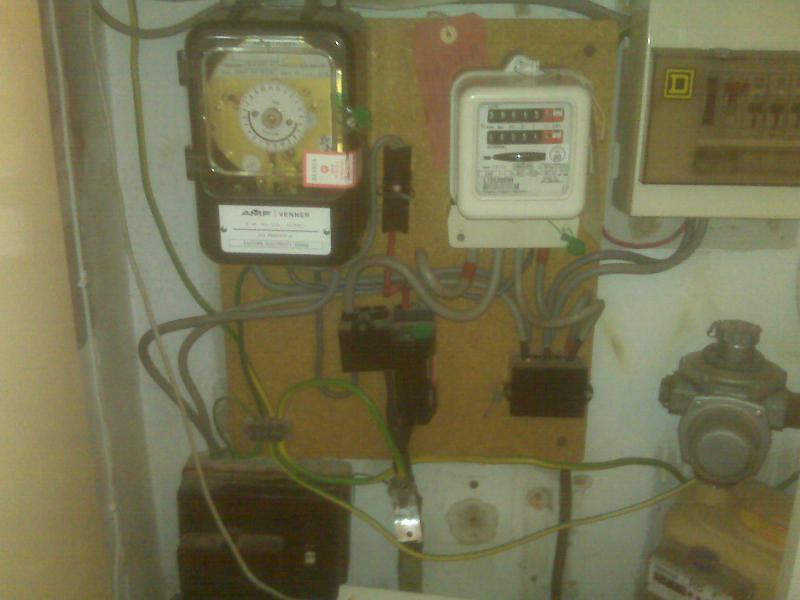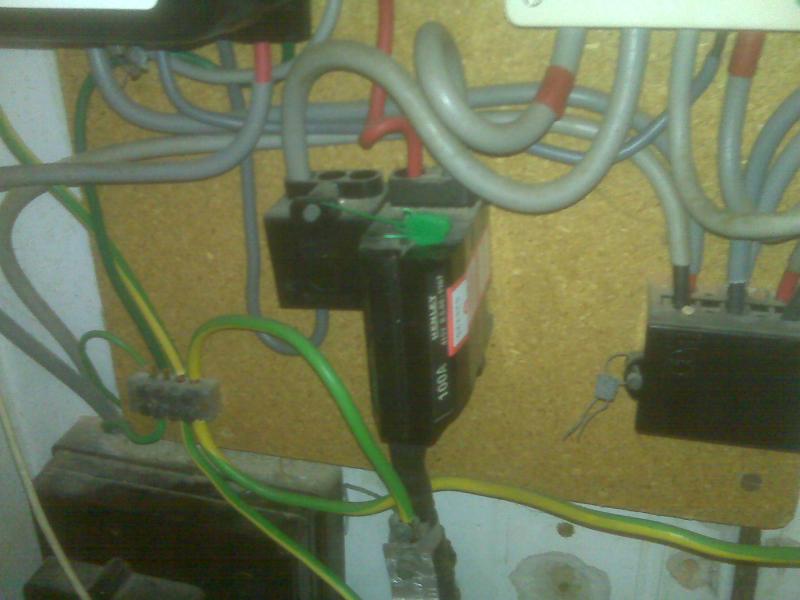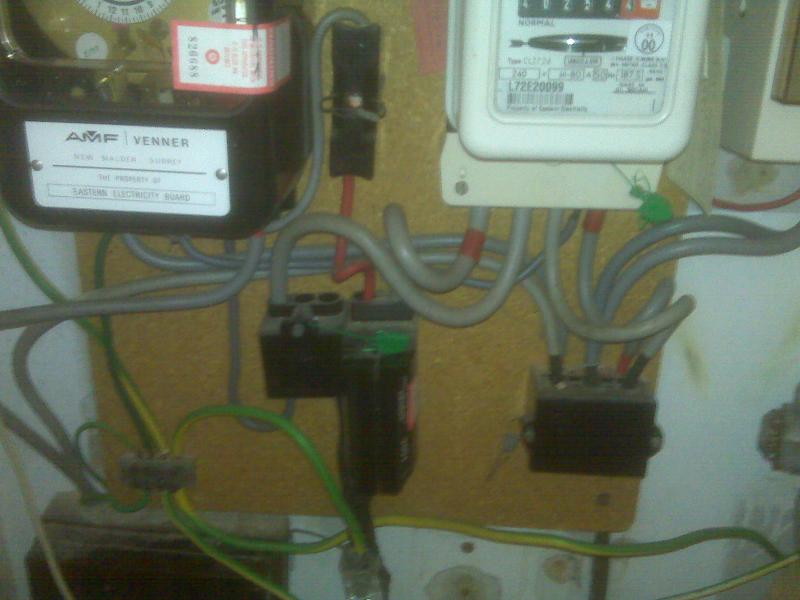You are using an out of date browser. It may not display this or other websites correctly.
You should upgrade or use an alternative browser.
You should upgrade or use an alternative browser.
LABC boys love a shower.
- Thread starter atm
- Start date
Isolation!... fuse fairy cut seal before i started.. apart from calling supplier cant see way round it..
Do they leave a pound under your pillow as well
Isolation!... fuse fairy cut seal before i started.. apart from calling supplier cant see way round it..
Do they leave a pound under your pillow as well
100amp HRC if he's lucky just in case the other blows when he puts it back
Isolation!... fuse fairy cut seal before i started.
I was lucky the same way in that the fuse was left unsealed, in fact the lugs the wire goes through were broken off. By a German sent round by the lecky people to change the meter. I was however unaware of his sexual orientation until reading the above post.
The nicest way would be to get an isolator fitted. Some suppliers will do them for free, some will charge a small fee (e.g. I had one fitted by British Gas who charged me £30 or so), and some will just refuse claiming you need to get an electrician to do it (even though to do it if it requires changing the meter tails requires breaking the seal on the meter!)...
If you don't have an isolator, the official way you are meant to do it, is to call the DNO out to isolate the supply, and then get them to reconnect when you're done. Quite a lot of professional sparks won't do this (since it requires working to the DNO's schedule), and will just pull the cut-out fuse, and either just not replace the seal, or perhaps have obtained the relevant tags and crimp tool to replace it themselves. Some DNOs even authorise members of certain professional bodys (e.g. NICEIC) to cut the seals and remove the fuses.
If you do do it yourself (which I wouldn't recommend), then as has been said, make sure there is no load present at the time (i.e. switch off CU at main switch), and be very careful once it's out, as depending on the design you may have accessible live terminals, that are effectively unfused (yes there will be some sort of fuse upstream, but by the time that blows you'll be long dead)...
If you don't have an isolator, the official way you are meant to do it, is to call the DNO out to isolate the supply, and then get them to reconnect when you're done. Quite a lot of professional sparks won't do this (since it requires working to the DNO's schedule), and will just pull the cut-out fuse, and either just not replace the seal, or perhaps have obtained the relevant tags and crimp tool to replace it themselves. Some DNOs even authorise members of certain professional bodys (e.g. NICEIC) to cut the seals and remove the fuses.
If you do do it yourself (which I wouldn't recommend), then as has been said, make sure there is no load present at the time (i.e. switch off CU at main switch), and be very careful once it's out, as depending on the design you may have accessible live terminals, that are effectively unfused (yes there will be some sort of fuse upstream, but by the time that blows you'll be long dead)...
S
sparkyspike
Ok, the real reason I mentioned removing the meter leads rather than pulling the fuse, is that the fuse could have been in place for decades and there is a possibility of it breaking when you pull it out - it can be quite stiff.
However, this was slightly tongue-in-cheek. If you are bent on isolating the cut-out yourself, then that's your look out, fuse fairy or not. But you did seem quite agreeable with calling the DNO out for a DP isolator to be fitted. If that's the case, then do it - it will be useful for you and any electricians in the future anyway.
However, this was slightly tongue-in-cheek. If you are bent on isolating the cut-out yourself, then that's your look out, fuse fairy or not. But you did seem quite agreeable with calling the DNO out for a DP isolator to be fitted. If that's the case, then do it - it will be useful for you and any electricians in the future anyway.
called supplier, they said they dont do it have to call an electrician.
ok here it is.. i am quite happy to pull fuse myself... assume there is not much to it.. break seal and pull.. surely it cannot be that simple??
what would a qualified spark do differently?
again thanks for support..
ok here it is.. i am quite happy to pull fuse myself... assume there is not much to it.. break seal and pull.. surely it cannot be that simple??
what would a qualified spark do differently?
again thanks for support..
Officially only the DNO / supplier is supposed to pull the fuse. Ultimately it is just a matter of switching off the load, then cutting the seal and pulling it, and if it's in good condition, that will be fine (the guy who fitted my isolator just did that, no special precautions taken or whatever).
The tricky bit is being able to recognise when one is in good condition, or when one is likely to disintegrate in your hands - if you post a pic of your service head, people here are likely to be able to tell you what sort of condition it's in...
If it's got a risk of disintegrating, then don't touch it yourself. Someone from the DNO might do it wearing a pair of insulated gauntlets or similar, but they have training (and insurance!) to be able to do it.
The tricky bit is being able to recognise when one is in good condition, or when one is likely to disintegrate in your hands - if you post a pic of your service head, people here are likely to be able to tell you what sort of condition it's in...
If it's got a risk of disintegrating, then don't touch it yourself. Someone from the DNO might do it wearing a pair of insulated gauntlets or similar, but they have training (and insurance!) to be able to do it.
Do those gauntlets also protect against arcing, or just make it safe to touch live parts?
Talking of arcing - atm - you might want to get a faceshield too - if it all goes pearshaped you do not want to get zapped.
http://www.seton.co.uk/setoneurope/catalog/0/20/100007-1 200110-2 300730-3.html
http://www.seton.co.uk/setoneurope/catalog/0/20/100007-1 200110-2 300731-3.html
Talking of arcing - atm - you might want to get a faceshield too - if it all goes pearshaped you do not want to get zapped.
http://www.seton.co.uk/setoneurope/catalog/0/20/100007-1 200110-2 300730-3.html
http://www.seton.co.uk/setoneurope/catalog/0/20/100007-1 200110-2 300731-3.html
Good question - I don't really know. You can get ones with quite extreme ratings in terms of voltage, and obviously you get welding gauntlets that are designed to stop people getting zapped by arc welders, so I'd assume as long as you get one appropriately rated it will do the job...
I think that for a LV cutout I'd be happier with kneeling/standing on an insulator and wearing dry welding gauntlets....Good question - I don't really know. You can get ones with quite extreme ratings in terms of voltage, and obviously you get welding gauntlets that are designed to stop people getting zapped by arc welders, so I'd assume as long as you get one appropriately rated it will do the job...
Fortunately my meter now has a built-in isolator, so I don't have to face that problem....
DIYnot Local
Staff member
If you need to find a tradesperson to get your job done, please try our local search below, or if you are doing it yourself you can find suppliers local to you.
Select the supplier or trade you require, enter your location to begin your search.
Please select a service and enter a location to continue...
Are you a trade or supplier? You can create your listing free at DIYnot Local





